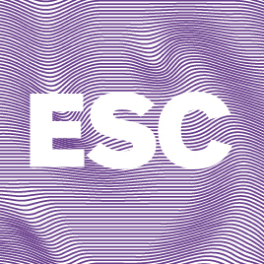Framework
A Framework to enable and facilitate your city’s transformation into an Ethical Smart City.
1. Know
Define what it means to be an ethical smart city and set benchmarks to decide which cities you want to learn from.
Generate a shared understanding of your ethical baseline. Evaluate which cities you can learn from and use them as benchmarks.
In this step, Smart City champions take the lead in the process of knowing and defining the community’s values to arrive at a shared understanding of ethics. This will enable the community to spell out what it wants to achieve and simultaneously avoid and to set an Ethical Smart City benchmark criteria. When planning for the implementation of Ethical Smart City solutions, there must be involvement and participation of community members from the initial stages of planning. To ensure the success of the Framework and the transformation process, communities at large need to learn what it means to become an Ethical Smart City.
While each city has its own starting point and journey, identifying the cities that have experienced similar challenges and their process in solving these problems is crucial in influencing the implementation of Ethical Smart City projects.
An example of a city that has effectively included their communities in the process of initiating their Smart City planning is Mississauga, Canada. Mississauga joined Infrastructure Canada’s Smart City Challenge in 2018 whose outcomes initiated Mississauga’s SMRT CTY master plan. Details on how Mississauga started this journey and developed its standards are described in the precedents section.
Generate
Know Your Ethical Baseline
In this step, a shared understanding of what is valuable to the community is generated. With this understanding, the community has a starting point for defining what is ethical to them. The ESC Framework makes no attempt at prescribing a set of values; instead it enables you to identify, understand and uphold the values of their communities. The Framework revolves around an understanding of the subjective nature of ethics and its impact on the planning, design and implementation of Smart City projects.
The generative output in this step is supported by the ESC Definition and the Value Mapping tool. Both of these tools can be used by the achieve a shared understanding of ethics and a definition of ESC for their municipality.
Precedent
How did Mississauga define their Smart City standards?
As a growing city, Mississauga recognized that the integration of digital technology into its infrastructure, systems and processes will result in economic resilience and sustainability. In 2018, Mississauga responded to Infrastructure Canada’s Smart Cities Challenge to begin its transformation into a Smart City. Find out what Mississauga did to determine their ethical baseline.
Tools
Evaluate
Know What You Can Benchmark Against
Learning from communities with similar Smart City aspirations is the starting point for Smart City Champions. Through learning about the experiences of other communities, they will be equipped with standards to benchmark their intended projects. It is not enough for communities to be inspired by or even mimic the best solutions, these solutions need to be adapted to their own local, political, social and economic context.
In this step, Smart City solutions and projects from other cities are evaluated against the community’s ethical benchmark criteria. By sourcing and evaluating best practices and benchmarking, the right tools and approaches can be identified. This will not only help inspire solutions, but also reinforce the ethical baseline for your community.
The evaluative output in this step is supported by the ESC Benchmark and the Comparative Analysis tools. Either of these tools can be used to set a benchmark criteria to filter possible solutions.
Precedent
How did Mississauga start its journey toward an Ethical Smart City?
To embark on this journey, Mississauga first began benchmarking by comparing case studies of Smart Cities. Find out what Mississauga learned from this process.
